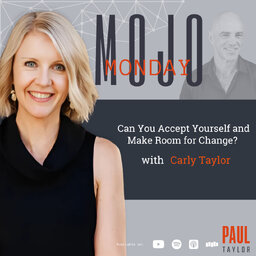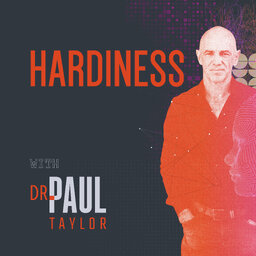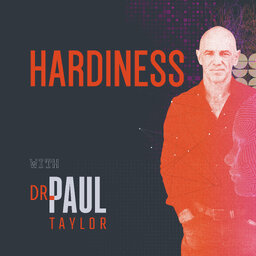Be the Oldest in the Gym, Not the Youngest in the Nursing Home Part 2
Dive into the world of exercise science with physiology and performance expert Dr. Stacy Sims. Discover age-optimised fitness strategies from youth to golden years, unpack the science of recovery, and demystify cardio training. Learn how to adapt your workouts through hormonal changes, understand the mental health benefits of exercise, and explore nutrition's role in longevity. Whether you're a fitness novice or seasoned athlete, gain actionable insights to revolutionise your health and add life to your years. This episode spans generations, offering wisdom on everything from youth sports to advanced techniques for the 50+ crowd.
Key Topics:
-
Age-Optimised Exercise Protocols: Tailored strength and cardio recommendations for different life stages, from twenties through to post-menopause/andropause, with evidence-based adjustments for optimal results.
-
The Science of Recovery and Training Intensity: Gender differences in rest periods, central nervous system impacts, and how to properly implement supersets and heavy lifting for maximum benefit.
-
Cardio Training Demystified: Deep dive into Zone 2 training, high-intensity intervals, and sprint protocols, exploring the science behind mitochondrial adaptations and their impact on overall fitness gains.
-
Hormonal Transitions and Exercise Adaptation: How to modify training approaches during menopause and andropause, with specific guidelines for maintaining strength and metabolic health through hormonal changes.
-
Youth Fitness Foundations: The importance of teaching diverse sports and proper lifting techniques to young people, emphasising the psychological benefits of strength training and movement competency.
-
Nutrition Fundamentals for Longevity: Protein requirements as we age, the role of plant-based diets, and the significance of fermented foods in overall health optimisation.
-
Advanced Training Techniques: Exploration of plyometrics, specialised protocols for 50+ fitness enthusiasts, and how to balance different training modalities for comprehensive health benefits.
Memorable Quotes:
-
“Resistance training is a bedrock there, but it has not been used as a bedrock.”
-
“Don't fall into that whole Fitzbo idea that the smaller you are, the better. That's a man putting you in a box, man.”
-
“When we look at morphology, women are more fatigue resistant.”
-
“when we're supersetting, we're doing more of a metabolic stress. We're not doing a neuromuscular stress”
-
“be the oldest one in the gym, not the youngest one in the nursing home”
-
“You got to expand. You got to eat a lot of different things.”
Actionable Takeaways:
-
Experiment with different exercise intensities, including Zone 2 cardio and high-intensity interval training, to find the optimal balance for your fitness goals.
-
Start strength training in your youth and maintain it throughout life to prevent early-onset muscle loss and its associated health risks.
-
Modify your workouts to account for hormonal changes during menopause and andropause, focusing on maintaining muscle mass and bone density.
-
Listen to your body and take rest periods according to your gender
-
Ensure you're consuming enough protein, especially as you age, to support muscle maintenance and overall health.
-
Add a variety of fermented foods to your diet to support gut health, which plays a crucial role in overall well-being and possibly brain health.
Resources Mentioned:
Connect with Dr Stacy Sims:
Learn more about Dr Stacy Sims
Dr Stacy Sims on LinkedIn
Dr Stacy Sims on Facebook
Dr Stacy Sims on Instagram
Dr Stacy Sims on YouTube
Connect with Paul Taylor:
Learn more about Paul Taylor
Paul Taylor on LinkedIn
Paul Taylor on Instagram
Paul Taylor on YouTube
Support the Podcast:
If you found this episode valuable, please consider subscribing, rating, and leaving a review on your preferred podcast platform. Your support helps us reach more people with important conversations like this one.
Share this episode with someone who might benefit from hearing it—emotional eating is more common than we think, and this conversation could make a difference in someone's life.
In 1 playlist(s)
Hardiness with Dr Paul Taylor
Host Dr Paul Taylor, a Psychophysiologist, Neuroscientist, Exercise Scientist, and Nutritionist inte…Social links
Follow podcast
Recent clips

Can You Accept Yourself and Make Room for Change? with Carly Taylor
04:34

A deep dive into Psychological and Physiological Hardiness , with Paul and Carly Taylor
58:07

Final proof that dietary advice for metabolic health needs to change: Wisdom Wednesdays
13:07
 Hardiness with Dr Paul Taylor
Hardiness with Dr Paul Taylor